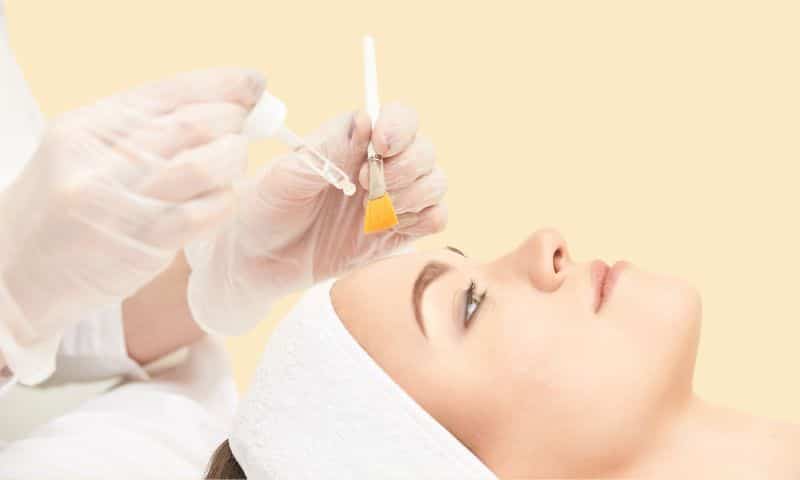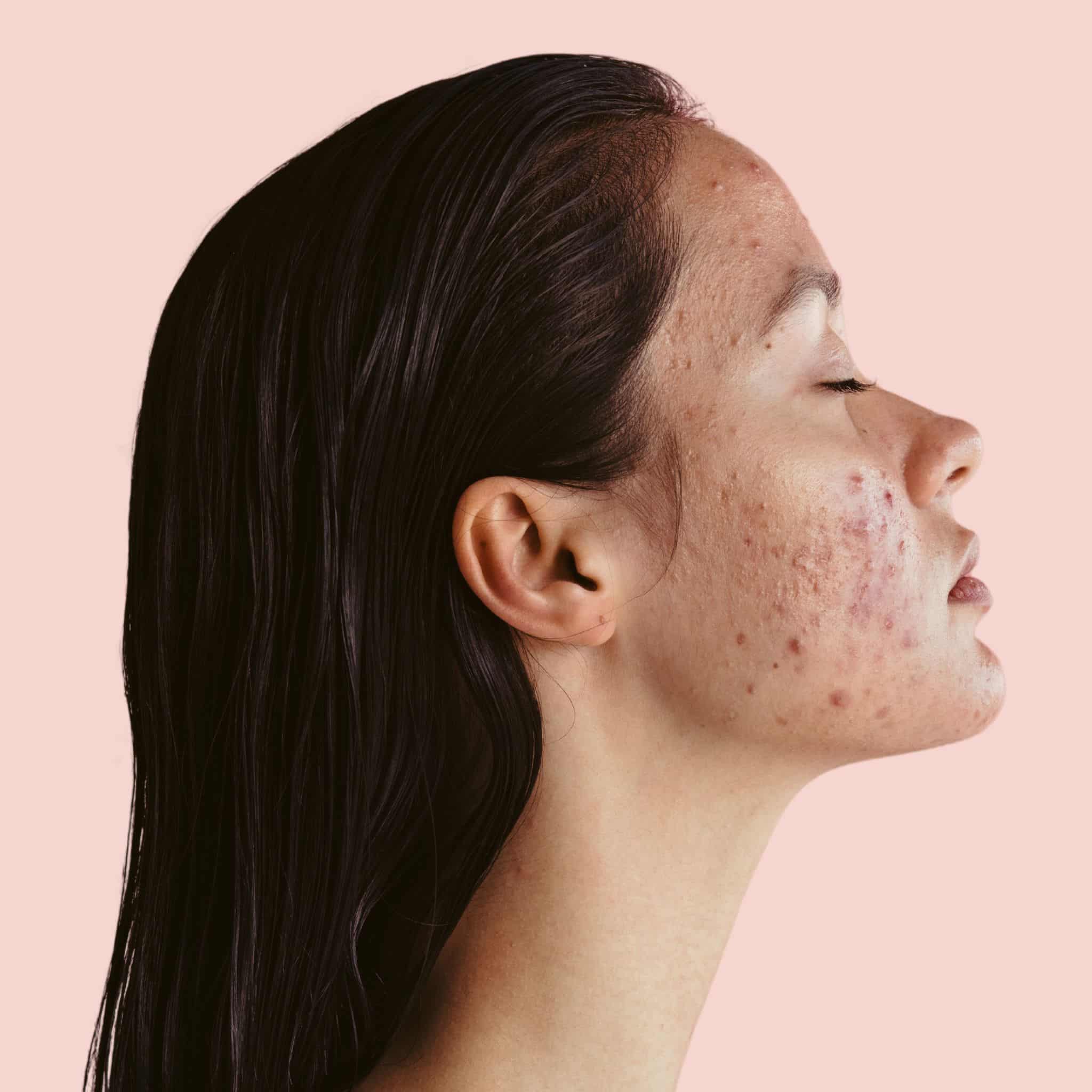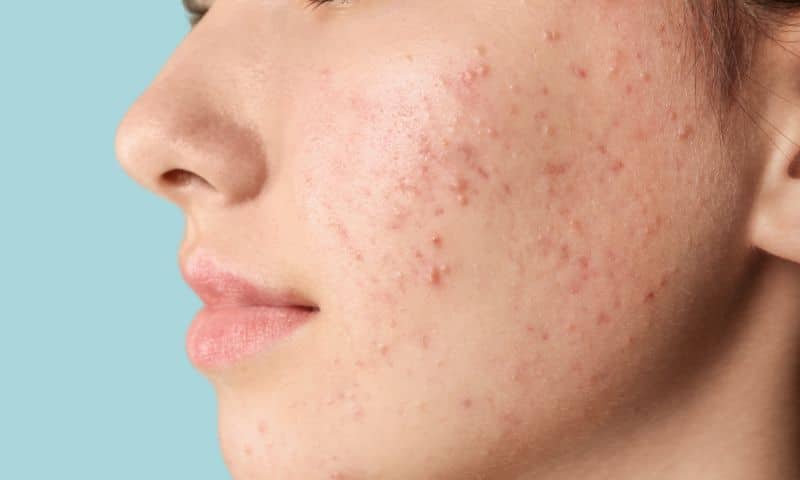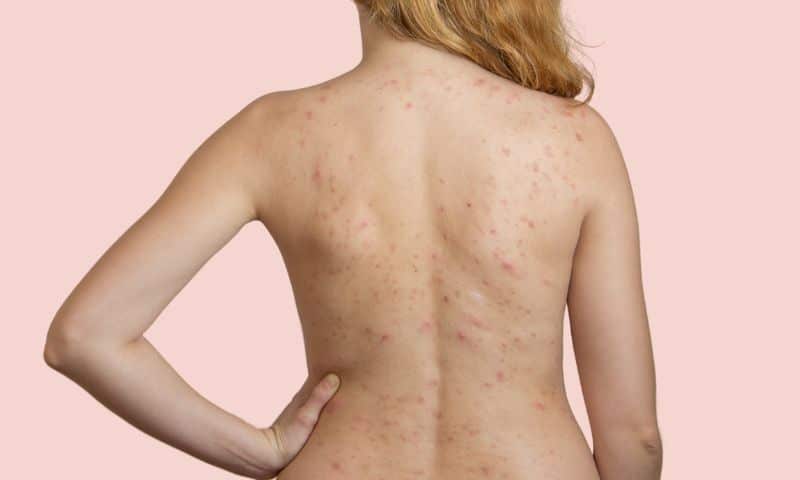Frequently asked questions
How does acne start?
Acne is caused by a combination of factors, including blockage of the sebaceous glands, inflammation and bacteria. This can cause pimples, blackheads and pimples.
The sebaceous glands in our skin produce sebum to keep our skin supple and hydrated. But when the sebaceous glands become clogged, the sebum cannot find a way out and can lead to the development of acne.
In addition, hormonal changes, such as puberty or pregnancy, can increase sebum production and make acne worse. Other factors that can influence acne include genetic predisposition, stress, or the use of certain medications.
Bacteria, such as Propionibacterium acnes, can also contribute to acne breakouts by multiplying in the clogged sebaceous glands.
For this reason, it is important to combine a healthy skincare routine with treatments to control acne.
Products used to treat acne
A good skin care routine helps reduce, or prevent worsening of acne. Below are some tips on product use and acne:
- Cleansing: It is important to cleanse your skin daily with a gentle, non-comedogenic cleanser. This helps remove excess sebum, dead skin cells and other impurities.
- Exfoliation: Exfoliating regularly removes dead skin cells, which helps prevent clogging of pores.
- Hydration: It’s important to apply a moisturizer or serum to keep your skin hydrated. To keep the skin in good condition, drink at least 2 liters of water per day.
- Protect: UV rays from the sun can dry and irritate the skin, which can increase sebum production and bacterial growth. This can lead to a worsening of acne. It is important to choose a product with a high SPF and broad spectrum UVA and UVB protection. In addition, SPFs sometimes contain ingredients that irritate the skin, such as chemical filters or alcohol. It is important to choose products that are suitable for sensitive skin and target acne treatment.
- Products: Avoid using cosmetics, skincare or make-up that clog pores. These are often products that are occlusive (block pores) or contain comedogenic ingredients. Our skin specialists can provide personal product advice about which products may be suitable for your skin.
It is important to remember that a skin care routine alone is not always enough to treat acne. Treatments help to get acne under control, towards beautiful skin.
What are the different types of acne?
Several types of acne lesions are common including: comedones (white and black blackheads), papules (red pimples) and nodules (large cysts) and pustules (pimples). It is important to get the correct diagnosis of the type of acne in order to receive the most effective treatment. We can help determine the specific form of acne and draw up an appropriate treatment plan.
What are the causes of acne?
The sebaceous glands are located in the deeper layers of the skin and produce oil, known as sebum, to protect and moisturise the outer layers of skin. When the sebaceous glands become overactive, this can lead to an increase in sebum production and clogging of the pores. This clogging of the pores can occur at any time, but acne usually starts during puberty when the skin undergoes all kinds of changes due to hormones during puberty.
Below are the main causes of acne:
- Hormones: Changes in hormones, such as during puberty, pregnancy, or menopause, can lead to an increase in sebum production, which can cause acne.
- Genetics: Acne is a congenital condition and heredity plays a role in developing it.
- Clogging of pores: The skin makes natural oils that clog the pores and lead to the growth of bacteria, which causes acne.
- Inflammation: When bacteria gets into clogged pores, it can cause inflammation, which makes acne worse.
- Nutrition: A diet high in sugar, dairy products and refined carbohydrates can lead to acne.
- Stress: Stress can lead to changes in hormones and a decrease in the immune system, which can make acne worse.






